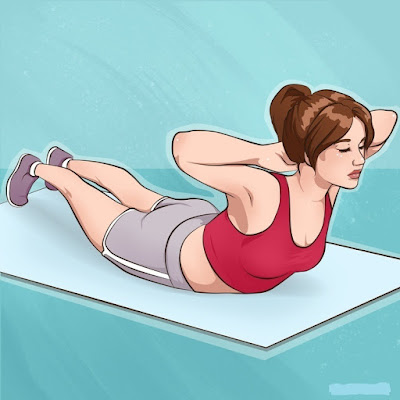The Best Ways to Cure Your Heel Pain (Plantar Fasciitis) Naturally

Does your heel hurt so much that the pain interferes with your daily activities? This debilitating heel pain might occur due to inflammation of the flexible band of tissue located under the foot’s sole called plantar fasciitis – a condition characterized by pain, stiffness, or burning sensation at the bottom of your foot.
This tissue connects the heel bone to the bones of the toes, making the arch of the foot. When damaged from activities like dancing or jogging, as well as wear and tear over time, plantar fasciitis can get inflamed and cause a terrible pain especially in the morning or after a period of rest.
The risk of plantar fasciitis increases if you have high arches or flat feet if you’re obese, and if you wear shoes that don’t provide proper support.
Going for a long run or other similar activities that strain your feet can also cause this heel condition.
The Best Ways to Cure Your Heel Pain (Plantar Fasciitis) Naturally
Nevertheless, some natural ways can help manage your heel pain and take care of your foot better. In case none of them proves helpful, here are few natural remedies that are sure worth a try.
Rest and Apply Ice
The first thing to do when experiencing heel pain is let your foot rest. Avoid standing for too long or walking long distances.
Also, applying an ice pack on the affected area for 10-15 minutes, few times a day can further reduce the pain.
Wear the Right Shoes
Stop wearing shoes that don’t provide proper support, and choose ones with laces and low or moderate heels which support and cushion your arches and heels.
Avoid flats, and remember to change your sports shoes every 500 miles when running or doing other physical activity that puts extra strain on your feet.
Another way to support your feet and improve your heel condition is wearing orthoses insoles. If the pain keeps on recurring, you might wear them longer.
Splints and Straps
Wearing night splints can speed up the heel pain recovering process.
What they do is keep your toes pointed upward when sleeping, helping to stretch plantar fascia and Achilles tendons not allowing the tissue inside the heel gets squeezed.
Using a sports strapping tape to strap your heel is another way to relieve pressure.
Doing the following foot exercises can improve the flexibility of your calf muscles, Achilles tendons, and ankle, thus relieve and prevent plantar fasciitis.
Stretch your heel using a towel the first thing when you wake up. Loop it around the ball of your affected foot and pull it toward you not bending your knee. Do this 3 times for each foot.
Another exercise good for your plantar fasciitis requires a chair. Sit on it placing your feet on the floor, with your heels touched and toes faced in opposite directions.
Your heels should stay on the floor while lifting your toes upward 10 times. You’ll feel your calf muscles, and Achilles tendon tighten as you do this exercise. Repeat for 5 to 6 times a day.
For this exercise, you need a round object such as rolling pin, tennis ball, or a can. Sit down and roll the arch of your foot over the chosen object.
Do this twice a day with each foot, even if you feel pain only on one foot. This exercise will improve your stability and balance.
Acupuncture
One research investigated the plantar fasciitis treatment which involved stimulating the classical acupuncture points Sanyinjiao, Kunlun, and Taixi manually with needles for four weeks. The results showed significant heel pain relief.
The study also showed that those who didn’t get pain relief with this technique could be helped by stimulating certain trigger points in the plantar fascia and gastro-soleus.
Ayurveda
You can also try few herbal oral and topical medications.
Researchers discovered that castor oil and ginger are very helpful in the treatment of plantar fasciitis. Take the oil, as well as the ginger as a dry powder dissolved in water orally before breakfast.
They also say paste from the Ayurvedic medicine Kolakulathadi Choornam is also helpful when applied topically on the affected area and covered with castor leaves for four hours.
This was concluded in research which says 70 percent of the participants experienced heel pain and swelling relief within 15 days of the treatment including castor oil, ginger powder, Kolakulathadi Choornam, as well as a restricting diet (avoiding peas, sweets, potatoes, fried food, and curd).
Osteopathy
This type of therapy which addresses medical problems by massaging the joints, muscles, and bones, can also help the treatment of plantar fasciitis. This refers mainly to the counterstrain technique.
The technique uses a tender point and involves placing the body in a position in which the person will feel minimal pain when the tender point is pressed. The person has to be about 90 seconds in this position.
The study which proved counterstrain brings heel pain relief immediately, also suggests that the effect reduces after 2 days. So, it’s recommended to repeat the technique until complete recovering.
loading...


